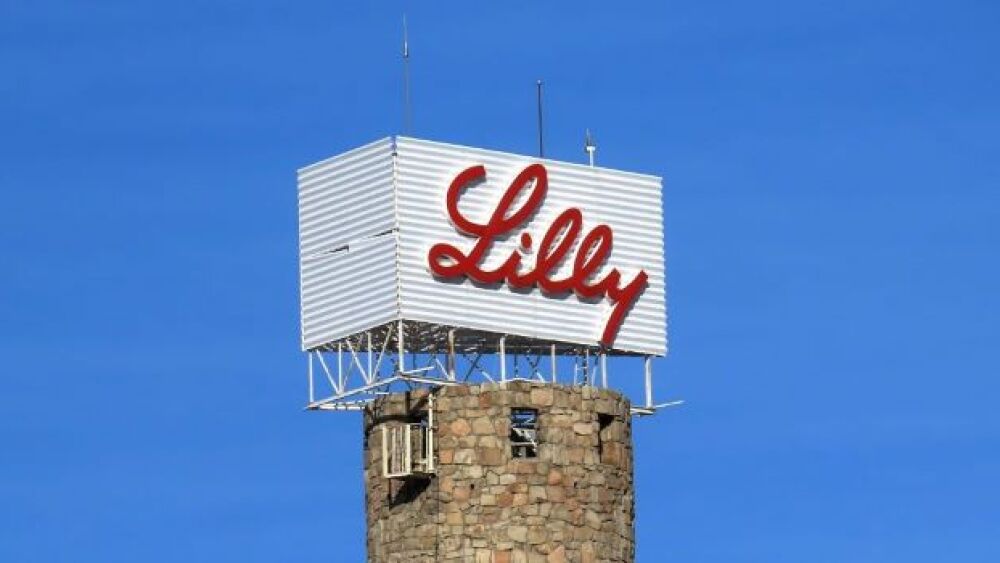Eli Lilly acquired rights to a technology from Entos Pharmaceuticals that boosts the development of nucleic acid therapeutics for the central and peripheral nervous system.
Cristina Arias/Cover/Getty Images
Eli Lilly acquired rights to a technology from Canada-based Entos Pharmaceuticals that it believes will boost the development of nucleic acid therapeutics that target the central and peripheral nervous systems.
This morning, Indianapolis-based Eli Lilly acquired the rights to Entos’ Fusogenix nucleic acid delivery technology for therapies that can potentially target the CNS and PNS. Lilly will harness that technology to research, develop, and eventually commercialize nucleic acid products for disease indications within those nervous nervous systems. Lilly said the Entos technology provides an opportunity to develop therapeutics that overcome a key delivery challenge for many nucleic acid therapeutic modalities.
Nucleic acid therapeutics hold significant promise in delivering effective treatment for CNS diseases, but delivery issues hamper them into target cells that can increase the chances of toxicity. Entos believes that its technology can overcome that.
Fusogenix PLVs are formulated with FAST proteins to enable the delivery of mRNA or DNA into target cells through direct fusion. According to the company website, Fusogenix PLVs use a novel mechanism of action to deliver nucleic acids, “intact and unmodified, directly into target cells.” The Fusogenix PLV technology applies to a wide range of genetic medicines.
As the partnership gets underway, Entos will be responsible for generating, developing, and optimizing PLVs with its proprietary Fusogenix platform technology. From there, Eli Lilly will be responsible for selecting PLVs for clinical development and potential commercialization.
Andrew Adams, Ph.D., vice president of Lilly Genetic Medicine, said nucleic acid-based therapies hold significant promise in “addressing the biologic cause of many serious diseases that have significant unmet medical need.” For those drugs to realize their full potential, Adams said the company must overcome current hurdles for the safe and effective delivery of those modalities.
“We look forward to working with Entos as part of our efforts to overcome this challenge and develop potential new therapies that may improve patient outcomes,” Adams said in a statement.
John Lewis, Ph.D., founder and chief executive officer of Entos, expressed excitement in the partnership with Eli Lilly. Lewis said the pharma giant had demonstrated an ability to blend cutting-edge scientific advances with its drug development strategies.
“We are excited for the opportunity to play a part in Lilly’s ongoing quest to develop high-quality medicines and believe our collaboration with Lilly is an important validation of the potential value of our expertise and technology platform,” Lewis said in a statement.
The research and collaboration agreement between the two companies covers multiple programs focused on developing proteo-lipid vehicles (PLV) to CNS and PNS targets. The companies did not disclose what those targets would be in their announcement.
Eli Lilly has several drug candidates in its developmental pipeline aimed at various neurodegenerative diseases, including Parkinson’s, Alzheimer’s, Gaucher disease Type 2, symptomatic Lewy Body Dementia, and others. Last year, Eli Lilly gained the rights to brain-penetrating RIPK1 inhibitors from Rigel Pharmaceuticals for potential use in neurodegenerative diseases.
Under terms of the deal, Eli Lilly paid Entos $50 million upfront, including an equity investment in the company. Neither announced the size of the equity investment. For each of the programs covered by the collaboration, Entos will be eligible to receive up to $400 million in potential developmental and commercial milestone payments. If a product is commercialized from the agreement, Entos will also be eligible for royalties.





